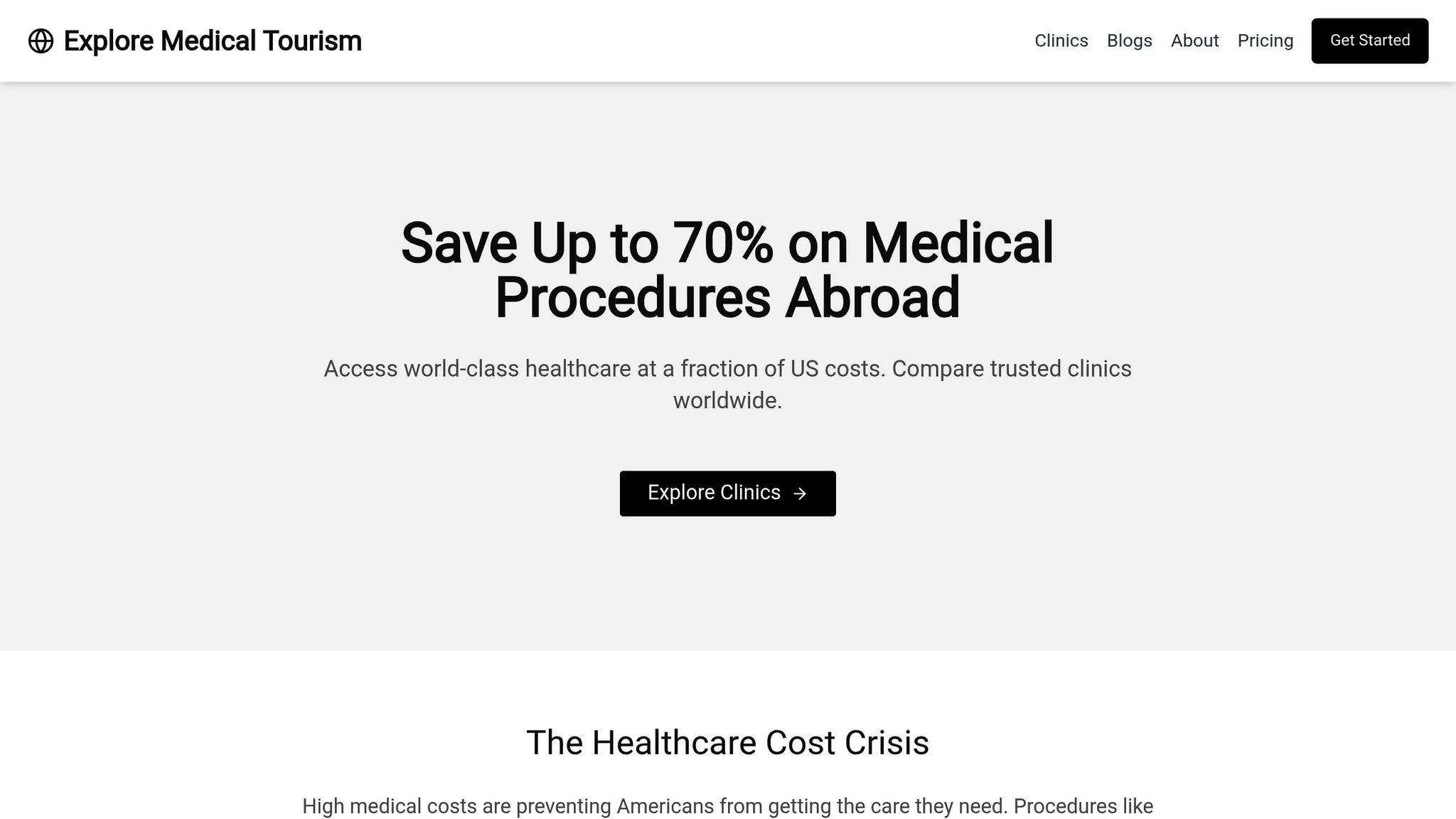Ultimate Guide to Emergency Support for Medical Tourists
Dealing with medical emergencies abroad can be daunting, but being prepared makes all the difference. Here’s what you need to know:
- Plan Ahead: Research and verify local healthcare facilities, their emergency protocols, and ensure you have all necessary documents (e.g., medical records, passport).
- Emergency Contacts: Keep a list of local emergency services, your clinic’s support team, and your home country’s embassy.
- Recognize Issues Early: Watch for signs like high fever, severe pain, or unusual symptoms, and act quickly.
- Post-Treatment Care: Arrange follow-ups with your local doctor and prepare for any additional costs after returning home.
Key Tip: Always prioritize clear communication with your medical team and ensure you have travel insurance to cover unexpected situations. A solid emergency support plan ensures peace of mind while you focus on recovery.
Planning a big trip? Tips for avoiding big medical bills while ...
Planning for Medical Emergencies Abroad
Put together a list of accredited hospitals or clinics in the area you'll be visiting. Include key details like their emergency care services, operating hours, addresses, phone numbers, and directions. Once you have this information and local contacts ready, move on to preparing your medical plan before traveling.
Emergency Care During Recovery
Recognizing Medical Issues
Be alert to signs of potential problems, such as a fever over 100.4°F, increased redness or swelling, unusual discharge, or severe pain. If you notice any of these, contact your healthcare provider right away through the secure booking portal [1]. Should the symptoms get worse, reach out to local emergency services immediately.
For situations that are life-threatening, contact local emergency services first before notifying your clinic or embassy.
Coordinating with Medical Teams and Authorities
In case of a medical emergency, follow this sequence:
- Local emergency services (e.g., the equivalent of 911)
- Your clinic's emergency response team
- The nearest embassy or consulate from your home country
Before traveling, ensure you have the following documents ready in both digital and printed formats:
- Medical records and details of your procedure
- Passport and visa
- Emergency contact numbers
[1] Medical tourists are encouraged to reach out to facilities directly using a secure system.
sbb-itb-3922076
What Makes Good Emergency Support
Check each facility's emergency readiness by ensuring they meet these essential criteria.
Key Emergency Services to Look For
- Round-the-clock English-speaking medical staff and on-site translators available at all times.
- Emergency protocols written in English for clear communication and understanding.
Evaluating Emergency Support Options
- Language Services: Find out how many English-speaking staff are available per shift and what kind of translation help is offered during emergencies.
- Emergency Protocols: Ask for a copy of the facility's emergency procedures in English to review their approach.
These elements are the foundation of a reliable emergency support plan - your lifeline when you're abroad.
Managing Care After Return
Getting back home is a crucial part of your recovery plan after medical travel.
Post-Travel Medical Care
- Schedule a follow-up appointment with your local healthcare provider and ensure your medical records are transferred before heading home.
- Set aside funds for any unexpected expenses, such as therapies, additional tests, or prescriptions.
Keep in touch with your healthcare team through the communication channels you’ve already established to ensure a smooth recovery at home.
Using Explore Medical Tourism

Explore Medical Tourism helps connect you with trusted local providers who have experience with international treatments. They also provide detailed guides to help you manage your post-treatment care effectively.
Conclusion
Careful preparation and understanding your resources are key to a safe and successful recovery when seeking medical treatment abroad. With the right planning, patients can choose trusted healthcare providers while cutting costs on procedures [1].
Here’s a quick guide to your emergency-support plan:
- Research and verify healthcare facilities using Explore Medical Tourism.
- Get travel and medical insurance to cover unexpected situations.
- Maintain clear communication with your medical team.
- Evaluate emergency support services to ensure you’re covered in case of complications.
- Plan for post-treatment follow-up care to support your recovery.
"Explore Medical Tourism gave me all the information I needed to make an informed choice. The savings were incredible - $48,000 less than my local quote." - Robert M., Massachusetts [1]
